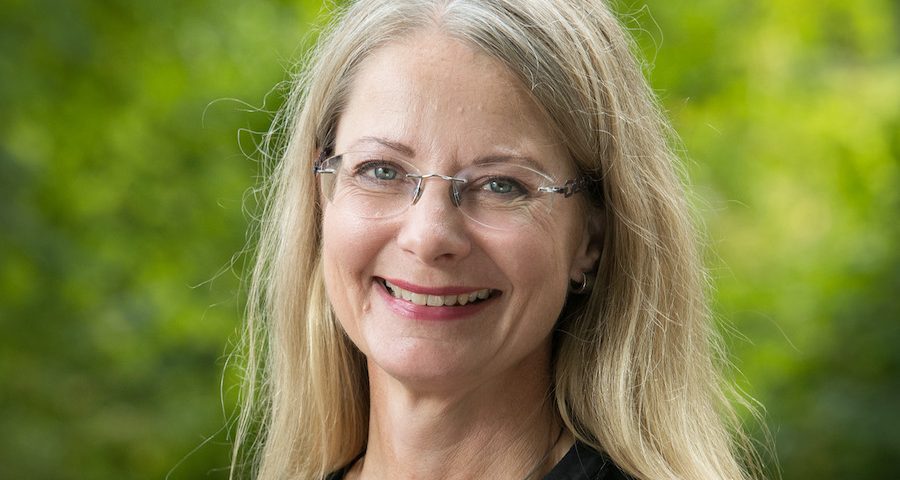
Scott Kelley: Why convincing the state to increase its charity spend requires a new mindset
January 12, 2022
A new dawn: What will 2022 bring for fundraising?
January 12, 2022Now in post as president, we take a moment to get to know Charlotte Rydh, exploring her career in fundraising, her passion for sharing knowledge across borders and her hopes for EFA in this new phase for the association.
Charlotte, can you tell us about how you first got into fundraising?
My first professional role in fundraising came about when my alma mater, Stockholm School of Economics, recruited me to run their first alumni fundraising programme in 1997 and there’s been no looking back. I enjoyed the work with alumni, but it was when I moved on to major gift fundraising in 1999 as campaign director for the first capital campaign for a state university in northern Sweden that all the pieces came together. I love working with major gifts as it involves both strategic work within the organisation and engaging people to give gifts that can be transformational. Over the years, I’ve worked as a consultant for Brakeley, primarily in higher education and culture, as director of communication and fundraising for Ersta diakoni, and heading up marketing for three historical museums. When I felt I needed to broaden my experiences beyond fundraising, I became secretary general for AFS Interkulturell Utbildning for four years, before taking on the same role for Giva Sverige.
Under your leadership, the Swedish association FRII evolved into Give Sweden (Giva Sverige), what was the thinking behind this shift?
Actually, the organisation had talked about the potential for making this change for the best part of 10 years, because our former name, Frivilligorganisationernas insamlingsråd (or the Swedish Fundraising Council), didn’t really reflect the breadth of the fundraising and giving scene in Sweden.
With the new name, we wanted to put more emphasis on our role for transparency and governance in nonprofits as well as the act of giving, rather than focusing too heavily on the process of fundraising. The new name has been really helpful in re-positioning our association internally towards members and externally – becoming a champion for private funding of nonprofits in Sweden.
And what are you most proud of achieving at Give Sweden?
So far, I am most proud of the transformation we have been able to make in expanding our services to our members, while strengthening the association itself to ensure it is a strong and financially sound organisation. This includes professionalising our training and events programme, increasing our analysis capacity and improving our advocacy work. Now, we are just trying to figure out how we can take this further as there is so much potential for us to support our members even more.
How long have you been involved with EFA and why do you think it’s so important to share knowledge across national borders?
I got involved with EFA in 2017 as a member of the Certification committee but my first encounter with EFA was just a few months after I joined Giva Sverige in 2016 when I participated in the Annual General Assembly and Skillshare in Bratislava. And that experience illustrates why sharing knowledge is so important.
The Skillshare gave me insights into hot topics at the time, such as GDPR and the Payment Services Directive (PSD2), which turned out to have an immense impact on the members of Giva Sverige and provided me with a fast introduction and different perspectives that would have taken me months to uncover otherwise. Sharing perspectives and knowledge with other countries gives us a broader understanding, and the insights and inspiration to be used back home. And, in the case of EFA, it’s an opportunity to pool knowledge and resources to have greater impact on a European level.
Now you’re in post as president, what do you think is most important for EFA?
The past two years have been such a huge period of change for the sector and it’s more important than ever that we can come together, share our experiences and accelerate learning, identifying new ways to support the fundraising community. I’m keen to grow the network and find new ways of exploring common trends in fundraising and giving, and to strengthen our voice for the sector. We’re also working to develop an advanced certification model for fundraising, which I hope many associations will then be able to take on to create a more tailored advanced fundraising qualification for the profession in their country.
You mention the huge period of change for the sector, what do you think this means for fundraising?
It’s both an immensely challenging and exciting time for fundraising. The sector’s use of fundraising channels is changing, so too is what the public wants from us and how they want to engage. Particularly among younger generations, I see that supporters want to understand more about the charities they engage with and to become advocates, part of that movement. They don’t just want to hand over the money and move on.
I feel that the sector needs to encourage that shift and provide opportunities for people to get more involved with the organisations they support, but the challenge is to make this change without deterring them from giving. People’s donations really are vital. But it’s so important that we find that balance in delivering the engagement that supporters crave. Issues like this transcend national boundaries and I’m greatly looking forward to exploring those further at a European level.
About Charlotte Rydh
Charlotte Rydh is EFA’s president and the General Secretary of Give Sweden (formerly the Swedish Fundraising Council). Having started out in higher education, Charlotte first began fundraising professionally twenty years ago. While her focus has been primarily in major gifts, she has worked with a range of charitable causes, including healthcare, research, higher education, young people and the arts. She joined the Swedish Fundraising Council in September 2016, joined EFA’s Board in 2019 and became president of EFA at the end of 2021. Charlotte previously led EFA’s Certification Committee.




